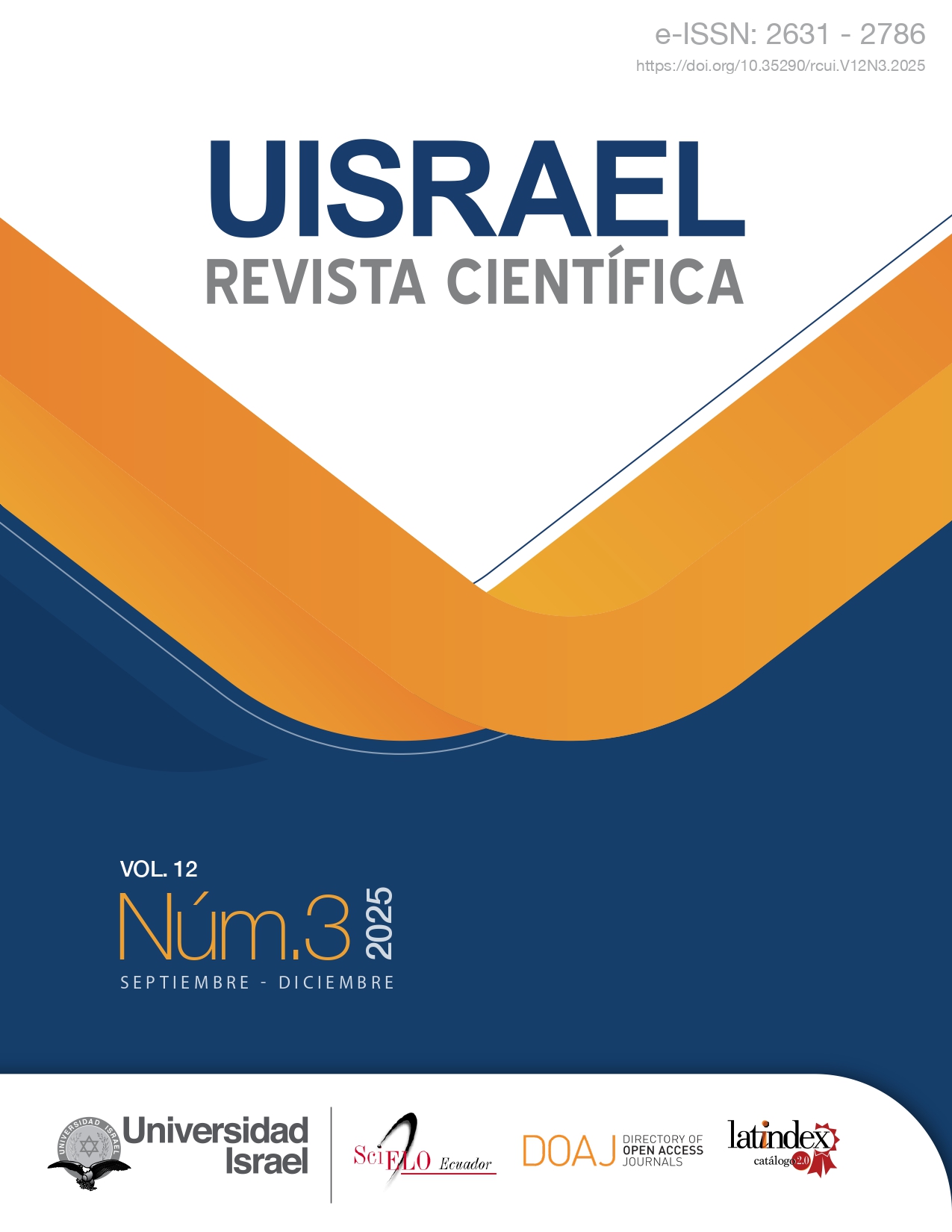Gamification (ta-tum application) to generate interest in children's and young adult literature.
DOI:
https://doi.org/10.35290/rcui.v12n3.2025.1253Keywords:
gamification, application ta-tum, children's and young people's literatureAbstract
Gamification (ta-tum application) is an adventure game, which allows students to take a genuine interest in literature, since it is a digital tool in which students are immersed in a world of detectives and can develop a taste for reading. Thus, the objective of this research is to propose gamification (ta-tum application) to generate interest in children’s and young people’s literature in students. As for the methodology, the qualitative approach was applied, which allowed us to evidence the opinion of 25 teachers; the survey was used as a technique and the questionnaire as an instrument, thus identifying that teachers would implement gamified strategies such as the ta-tum application to generate interest in reading; however, they do not do it due to lack of time: based on this, statistical methods such as Chi-square were applied to determine if there is a significant difference between the expected results, in addition to working with ANOVA to find out if the results obtained will help determine if gamification is an effective strategy to promote literary interest. Thus concluding that the 25 teachers consider that the ta-tum application helps to awaken literary interest in students.
Downloads
References
Aldana, G. (2021). La gamificación como estrategia pedagógica para mejorar los procesos de comprensión lectora en los estudiantes de quinto de primaria [Trabajo de posgrado, Universidad de Santander, CVUDES Centro de Educación Virtual]. Repositorio Institucional. https://repositorio.udes.edu.co/server/api/core/bitstreams/76cd834d-18a5-4e14-8c6b-af0c9213114b/content
Bustos, A. (21 de abril de 2019). Libre elección, el factor clave para mejorar los hábitos lectores en niños y niñas. DiarioUChile. https://radio.uchile.cl/2019/04/21/libre-eleccion-el-factor-clave-para-mejorar-los-habitos-de-lecturas-en-ninos-y-ninas/
Carvajal, J. (2020). Los recursos tecnológicos como herramienta para el mejoramiento de la lectura de los estudiantes de cuarto grado de primaria de la Institución Educativa José Celestino Mutis [Tesis de posgrado, Universidad Nacional de Colombia]. Repositorio Institucional. https://repositorio.unal.edu.co/bitstream/handle/unal/78062/60262260_2020.pdf?sequenc#page45
García, G. (2015). La investigación en la formación docente inicial. Una mirada desde la perspectiva sociotransformadora. SABER, Revista Multidisciplinaria del Consejo de la Investigación de la Universidad de Oriente, 27(1), 143-151. https://www.redalyc.org/pdf/4277/427739474018.pdf
González, C. (2022). Hábitos y prácticas de lecturas literarias de futuros profesores de Lengua y Literatura. Tavira. Revista Electrónica de Formación de Profesorado en Comunicación Lingüística y Literaria, (27). https://revistas.uca.es/index.php/tavira/article/view/9831/10384
Ministerio de Cultura y Patrimonio (2022). Encuesta de hábitos lectores prácticas y consumos culturales. Ministerio de Cultura y Patrimonio. https://siic.culturaypatrimonio.gob.ec/wp-content/uploads/2022/06/Boletín-EHLPRACC-14062022.pdf
Ordóñez, M. (2022). La gamificación como estrategia didáctica en el proceso enseñanza-aprendizaje de operaciones aritméticas con números racionales en séptimo de Básica en la Escuela Juan José Flores [Tesis de posgrado, Universidad Politécnica Salesiana]. Repositorio Institucional. https://dspace.ups.edu.ec/bitstream/123456789/22673/1/UPS-CT009814.pdf
Orellana, P. y Vial, M. (2018). ¿Existe claridad respecto del concepto de libertad lectora entre profesores de educación básica en Chile? Psicopedagógica, 9(12). https://www.cicuyo.org/ojs/index.php/Psicoped/article/view/96
Oviedo P. y Páez R. (Eds.) (2021). Pensamiento crítico en la educación. Universidad de la Salle. https://biblioteca.clacso.edu.ar/Colombia/fce-unisalle/20210211051501/Pensamiento-critico-educacion.pdf
Reynosa, E., Serrano, E., Ortega, A., Navarro, O., Cruz, J. y Salazar, E. (2019). Estrategias didácticas para investigación científica: relevancia en la formación de investigadores. Universidad y Sociedad, 12(1), 259-266. 2218-3620-rus-12-01-259.pdf
Published
Issue
Section
License
Copyright (c) 2025 Mayra Carolina Caiza Bautista, Lilian Marisol Chorlango Gallegos, Brenda Paola Guillen Ríos

This work is licensed under a Creative Commons Attribution 4.0 International License.
Los autores que participen de los procesos de evaluación y publicación de sus ediciones conservan los derechos de autor y ceden a la revista el derecho a la primera publicación, tal como establecen las condiciones de reconocimiento en la licencia Creative Commons Reconocimiento 4.0 Internacional (CC BY), donde los autores autorizan el libre acceso a sus obras, permitiendo que los lectores copien, distribuyan y transmitan por diversos medios, garantizando una amplia difusión del conocimiento científico publicado.
- Toda derivación, a partir de esta obra, deberá citar la fuente y a la primera publicación en esta revista. Se permiten derechos comerciales no lucrativos sobre sus contenidos.
- Los autores pueden realizar otros acuerdos contractuales independientes y adicionales para la distribución no exclusiva de la versión del artículo publicado en esta revista, es decir, podrán incluirlo en un repositorio institucional o publicarlo en un libro, siempre que indiquen claramente que el trabajo se publicó por primera vez en esta revista.
- Se permite y recomienda a los autores compartir su trabajo en línea, con la finalidad de intercambios productivos para una mayor y más rápida citación del trabajo como lo establece los efectos del movimiento ‘Acceso Abierto’.
- No puede aplicar términos legales o medidas tecnológicas que restrinjan legalmente a otros de hacer cualquier cosa que permita la licencia: https://creativecommons.org/licenses/by/4.0/deed.es
- La Revista Científica es financiada completamente de los aportes realizados por nuestra entidad editora: Universidad Tecnológica Israel; por tal motivo, no establece cargos o cobros de ninguna índole a sus autores y colaboradores, así como tampoco genera pagos o remuneraciones de ningún tipo a ellos.
- Se asignará un Digital Object Identifier (DOI) a cada publicación.







